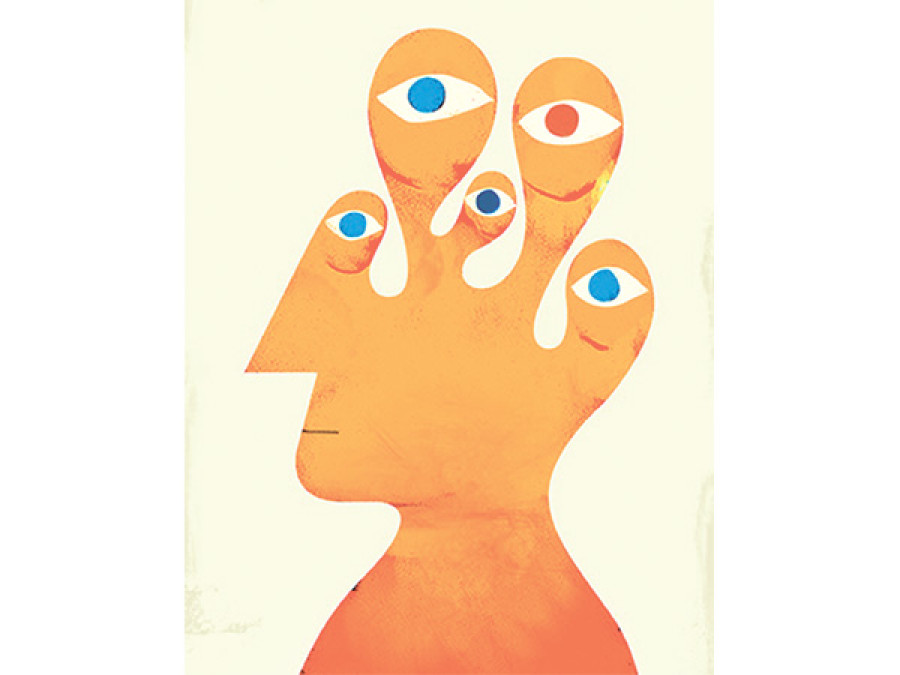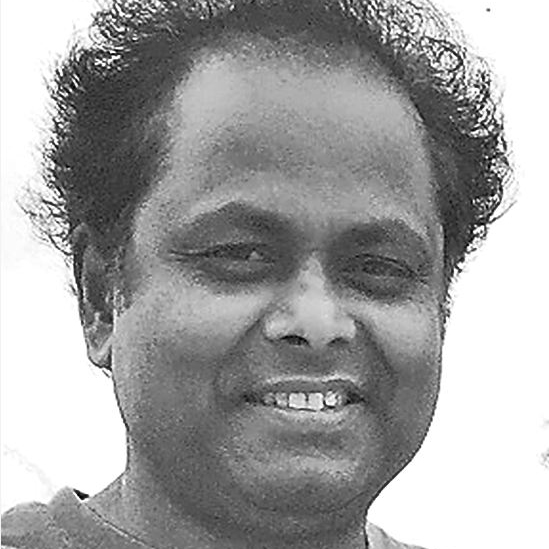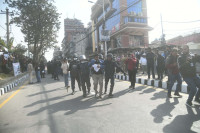Opinion
Lies, damn lies
Nepalis need to take collective ownership of the past instead of being swayed by the likes of Indian MP Aiyar
Pramod Mishra
After ‘Modimania’ and ‘Modiphobia’, the Nepali nationalist media and its social media shenanigans have been gripped by Mani mania now. Overnight, the murmurings of praise for Mani Shankar Aiyar ’s opinion piece published a while ago on the NDTV website has transformed into his celebration as Nepal’s savior in India. The translation of only his speech, of all the 14 speakers in India’s Rajya Sabha on Nepal, has appeared on the front pages of Nepali-language media and liked, shared and retweeted by the new breed of Nepali nationalists.But nobody knows when this ‘Manimania’ will again turn into ‘Maniphobia’. Perhaps when the Indian National Congress party member, who lost the elections, will have his rhetorical mood-swing and change his tone.
We have to jettison this ‘Bahadur’ syndrome and mindset—jumping with joy when patted on the back with a few words of praise and frothing at the mouth when somebody points out our ‘new clothes’. Nepalis have to be willing to confront Nepal’s problems with candor and honesty, the way Nepal’s scholarly forebears—Rishikesh Shah, Dor Bahadur Bista and Mahesh Chandra Regmi—did and the way many contemporary scholars and intellectuals have been doing.Madhesi leaders, many of whom I despise for their conduct during the first Constituent Assembly (CA), are in this sense new teachers. Ask Nepal’s many civil society leaders and young activists—and not Aiyar who lost it when he made his sophomoric ‘chaiwala’ (tea-seller) remark about Modi right before the latter’s sweeping victory in parliamentary elections.
Aiyar’s ignorance
For, Aiyar’s speech is filled with clichés about democracy, angst at Modi’s rise to power despite his Brahmanic snobbery as to who can be India’s prime minister and fear of China rather than any deeper understanding of either democracy’s complexity or of structural marginalisation in Nepali history and society. Yes, over 500 parliamentarians voted for the constitution but why did the Janajatis and Madhesis vote for their own marginalisation? If a CA member loses his seat if he defects from his party (according to the 2010 anti-defection law), how can a party win an election on a manifesto and then go against it in the CA? Furthermore, how can such parties continue to be part of an epochal body such as the CA and then write a constitution for the ages? This is precisely what the UCPN (Maoist) and the CPN-UML did. Should a party issue a whip to CA members as if they are parliamentarians?
Aiyar conveniently forgets why the minority Muslim League carved Pakistan out of India. Therefore, he does not know that the Madhesi leaders, including many a loser in elections like him, have been trying to prevent a bigger disaster in the making. Aiyar does not even know that Nepal’s CA was dissolved after the promulgation of the constitution and turned into a Parliament. And like a student debater, he quotes people from only one side of the debate over the blockade and the constitution to score his points, and forgets that his hero Rajiv Gandhi had blockaded Nepal for 10 months in 1989. But, more importantly, Aiyar has no idea about the nature and import of the Madhes Movement. He warns that half a million Madhesis who live in Kathmandu will fall victim to communal riots and Nepal would turn into Sri Lanka. Like many Indians, he does not care to inform himself beyond what the mainstream Nepali media feeds the outside world.
For the marginalised
The Madhes Movement has come to symbolise the freedom of all marginalised communities in Nepal. No wonder that various Janajati and Tharu organisations and progressive civil society members, including from amongst the hill castes, have not only endorsed it but warned Madhesi leaders against surrender. Aiyar would have known better if Periyar had not won Tamil ethnic freedom for him and he had been forced to speak in Hindi in Indian Parliament rather than in English.
He should have asked Padma Ratna Tuladhar what it means to lose one’s language. In the mid-1980s, Tuladhar’s mother returned home crying because she was not allowed to speak in Newari, the only language she knew, with her son by the prison officer in Bhadragol. All this happened in Kathmandu, the seat of thousands of years of Newari culture, art and language. No wonder then, that Shrawan and Rajan Mukarung’s grandfather had to uproot his family from his tribal village in the eastern Nepali hills and settle near a hill-caste village so that his progeny would learn Nepali. Should speakers of other languages similarly uproot themselves from their cultural and linguistic areas too? Would Aiyar like all Tamils to forsake Tamil and adopt Hindi, which is not even the first language of most north Indians?
Let us be honest
Migration to areas with better opportunities and possibilities has been the natural course of history. Hill-Tarai migration, too, would have been so if not for the sinister designs of the hill caste Nepali state in the 1960s, 70s and 80s to destroy the Tarai forests and systematically resettle people from the hills, and replace ethnic zamindars—who collected revenues and settled disputes—with hill caste-manned, Nepali-speaking administration that in three decades penetrated even the villages, destroying local cultures and impoverishing Tharus all over Nepal and Rajbanshis and Dhimals in Jhapa and Morang. In one way or the other, all non-hill caste groups have suffered this culture-cide and lingui-cide. That is why the intellectuals of these groups are supporting the Madhes Movement.
Of course, Aiyar, in his zeal to score easy points, would not bother to know all that. But we Nepalis, of all hues, should know better. We have to take collective ownership of the burden of the past; only then will a clear path to the future emerge. I, for one, have family on both sides of the Nepali ethnic divide. As I grew up among the Rajbanshis as my family, I had little contact with caste Madhesis then, and now in my adulthood, my family consists exclusively of hill castes. This is precisely the reason people like me cannot afford to be Aiyar, sending uninformed, vacuous praise from distant Delhi. Candor and honesty will rescue Nepal; flattery and self-praise will bring disaster.




 10.12°C Kathmandu
10.12°C Kathmandu










